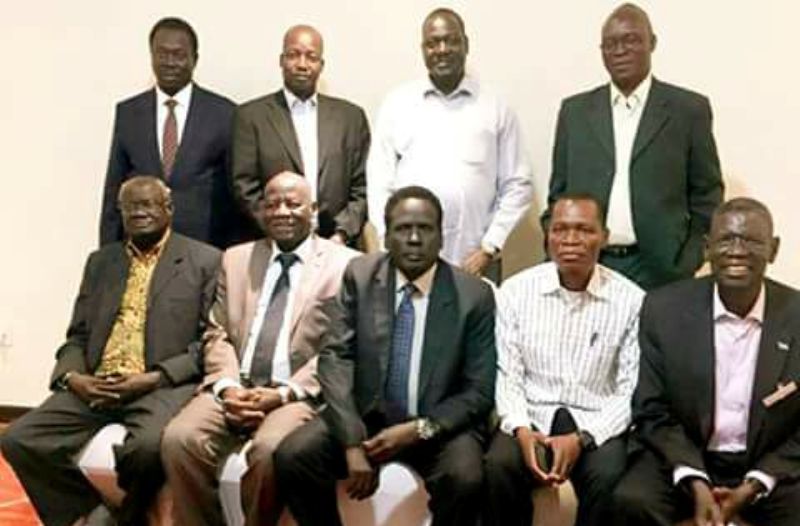South Sudanese opposition groups reject Khartoum governance deal

August 3, 2018 (JUBA) – South Sudanese political opposition groups Friday declared their rejection of the agreement on the outstanding issues on governance, dashing hopes for an inclusive deal on 5 August 2018.
In a joint statement on Friday, the South Sudan Opposition Alliance (SSOA) and the SPLM-FDs said they have been informed by the mediation that Juba rejected their proposals to settle the difference over the Independent Boundary Committee (IBC), and the proposed referendum which is now the default position if the parties fail to reach an agreement on the disputed 32 states.
“In view of this development, we would like to inform the public that we cannot sign the said agreement in its present form,” reads the joint statement reiterating their readiness sign it “if and when our concerns are addressed” in line to the three proposals they made.
The two opposition groups previously said opposed to the conditions under which the popular consultation over the number of states would be held, stressing that it would lead to maintaining a territorial administrative division illegally established.
Instead, they proposed that in case the IBC fail to reach a compromise over the 32 states to re-establish the previous territorial administration: 10 states, as agreed in a decision by the IGAD Council of Ministers in January 2016. Otherwise, or the “seventy- nine (79) Counties as they stood on 9/7/2005 or the three regions or, as a last resort, arbitration”.
The IGAD leaders and some African Union leaders are expected in Khartoum on Sunday for the signing of the agreement which will be the last on the outstanding agreement.
The deal will be signed by the South Sudanese government and the main armed opposition group, the Other Political Parties (OPP) led by Peter Mayen Majongdit and the South Sudan United Movement (SSUM) of Peter Gadet Yak who was part of the SSOA.
The South Sudanese information minister minimized the political opposition groups, saying their absence will not affect the implementation of the peace agreement. However, the IGAD mediation was keen to achieve a holistic and sustainable peace agreement.
The contribution of the SSOA and FDs would be important at the constitutional process as they represent the interests of some social segments that are not represented in the other political groups including the Shilluk which is the third ethic component in the country.
(ST)
